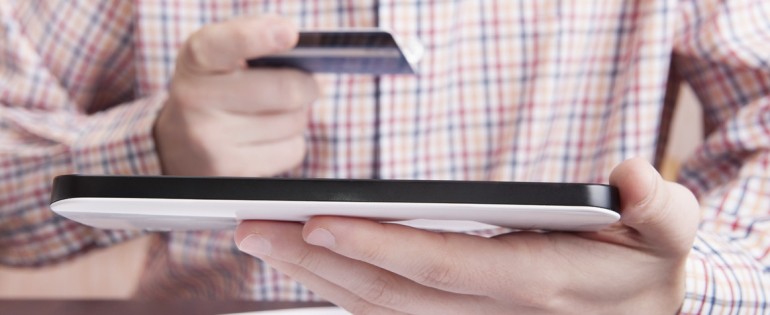
Credit Cards And Students Can Lead To Debt: Don’t Let That Happen To You
by Laura Agadoni / 0 Comments / Mar 30, 2015
Credit cards and students often go together because students and young people are far more likely to use plastic to pay for items, even for small purchases that cost less than $5, than they are to use cash. The opposite is true for senior citizens who greatly prefer cash to plastic, according to a 2014 CreditCards.com survey. There’s definitely been a culture change over the years, and there’s no denying that credit cards are convenient, but they can foster bad spending habits from the “out of sight out of mind” way people often think of money when they use one. College students who are inexperienced financially can wind up in trouble if they don’t have a plan for how to use credit wisely.
Credit Cards and Students Can Be a Dangerous Combination
A Time magazine article reported that people born between 1980 and 1984 carry about $5,500 more in credit card debt than their parents did at the same age. This is problematic, particularly if young people regularly spend more than what they earn just to get by. This often happens when students have a student credit card with no job.They will soon rack up so much credit card debt that they could still be paying it off as they approach retirement. Not only are young people getting into debt, they are paying if off slower than older age groups do, according to an Ohio State University study.
The Cost of Debt
If you know beforehand just how long it would take you to pay off your credit card debt, you might think twice about overspending. Let’s say you have a credit card and you used it during the month on various charges that totaled $1,000. Let’s also say the interest rate you pay on your card is 15 percent and your minimum payment is $20. If you never used your card again and just concentrated on paying off that $1,000 you spent in one month, and you make the minimum payment, it would take you about 6.5 years to pay it off, and you would have paid $579 in interest, more than half of what you spent.
Credit Report
If you miss payments or default on your debt altogether, a record of that behavior goes on your credit report and stays there for seven years. So a mistake you make at age 19 stays on your credit record until you are 26. If you want to take out a loan or rent an apartment during that time, you might be denied for being a credit risk. You might not get your dream job, either, if you have a bad credit report, because some employers might take that as a sign of bad character. If you are approved for a loan, you will probably have to pay a very high interest rate.
What You Should Do
It is beneficial to have a credit card. You can start establishing credit with one, and credit cards come in handy for emergencies. When you get your first credit card, take it easy. Don’t use it for a long-term loan, such as your student loan or for living expenses. Use it instead for small purchases that you can afford to pay off in full when you get your bill at the end of the month. If you did use your card for an emergency that you can’t pay off in full in one month, pay as much as you can. It’s never a good idea to pay only the minimum.
Leave a Reply
Your email address will not be published. Required fields are marked *
Copyright © 2014 Credit Cards . All rights reserved.
Advertiser Disclosure: The credit card offers that appear on CreditCardIdeas.com are from credit card companies from which this site receives compensation. This compensation may impact how and where products appear on this site (including, for example, the order in which they appear). This site does not include all credit card companies or all available credit card offers.
Editorial Disclosure: The editorial content on CreditCardIdeas.com is not provided by any bank, credit card issuer, airlines or hotel chain, and has not been reviewed, approved or otherwise endorsed by any of these entities. Opinions expressed here are author's alone, not those of the bank, credit card issuer, airlines or hotel chain, and have not been reviewed, approved or otherwise endorsed by any of these entities.

